

Discover more from The Obsolete Man
Not long ago, I decided to reread Aleksandr Solzhenitsyn's "One Day in the Life of Ivan Denisovich". The novel takes place over the course of one day and follows the thoughts and activities of a prisoner in a Soviet labor camp during Stalin’s rule. While the novel is fictional, it draws heavily from the actual prison experience that Solzhenitsyn endured and chronicled in "The Gulag Archipelago". A day or so after finishing One Day in the Life, I happened to see a movie from 2009 called A Serious Man. Though each story goes about it very differently, I feel like both are trying to tell us something important.
Ivan Denisovich
Ivan Denisovich awakens in his bunk early one morning. He is a prisoner in a Soviet labor camp in Siberia. It’s a freezing day in February. Ivan’s mind instantly turns to the needs and requirements of the day. Specifically, he games out different tactics to obtain food or supplies for his own use or to gain favor from his fellow inmates.
Ivan understands the mechanisms of the camp and the nature of humans. He tries to forge friendly relationships with his fellow inmates and be of service to them in hopes of reciprocation. Simple things such as knowing where to find tobacco or being able to patch tattered clothing take on enormous value in this environment. Ivan takes care to never press himself too strongly in interactions, or become seen as a nuisance or beggar. He intuits that his standing as a reliable and useful member of his prison unit is his only hope of making it through his sentence.
The day begins with conflicts. The inmates and competing crews constantly jockey for position and any advantage they can carve out for themselves. As a result, simple matters such as seating in the prison mess hall and bread rations being fairly divided become matters of incredible importance and even survival.
Following a breakfast of thin gruel, Ivan and his assigned prison crew are called into formation and marched to a construction site in the middle of the frozen tundra. The desolate location and harsh elements preclude any chance of successful escape.
The boss of Ivan's prison crew assesses what work is to be done and assigns tasks to each man. Ivan Denisovich has experience as a bricklayer and so he and a few others are put to work continuing the construction of a brick wall on one of the site's new buildings.
Ivan assesses the unfinished wall's current state and plans out his approach. He begins laying bricks and quickly settles into a rhythm which he maintains throughout the day. While working, he contemplates his situation, his sentence, his family, the troubles of the day. He considers what awaits him if he survives his sentence and is finally released. He correctly assumes that even after release, his status as a former convict will keep him on the fringes of Soviet society. He strategizes the best way to approach that hardship and thinks of ways he might be able to earn a living outside of the conventional channels.
Despite the cold and hunger, Ivan takes pride in his work. By finding something he can do well and directly, his work is a reprieve from the constant angling and side-door politics that make camp life so stressful. The day goes by quickly for Ivan as he settles into a sort of blissful concentration on the task at hand.
Eventually, the work day is done and Ivan’s crew is marched from the construction site back to the main camp. This provides a brief window of time for Ivan to hustle between various barracks in an attempt to find some tobacco or other valuable commodities.
Having made a connection in another unit that is willing to sell him tobacco, Ivan is able to earn something for himself by purchasing it on behalf of members of his crew. One inmate in Ivan’s barracks rewards him not only with a portion of the tobacco Ivan brings him, but two butter cookies he has received via mail from his family. Camp guards routinely stripped packages and mail of any valuables or comforts, so this is an extremely rare and valuable treat.
Ivan returns to his bunk. He is pleased to have secured some tobacco for himself and ecstatic about the unexpected blessing of the two cookies. He looks at the bunk across the aisle and sees Alyosha, the good natured Baptist. Alyosha has been imprisoned due to his religious beliefs. He is friendly and helpful, but not given to scrounging for himself in the way Ivan is. Ivan gives Alyosha one of the cookies. This is one favor for which he expects no reciprocation, yet he gives happily to Alyosha in a spirit of generosity and fellowship. Alyosha’s gratitude is immense.
All is not lost, even in the remote, frozen hellscape they have been banished to.
Ivan crawls into bed in high spirits. It was ultimately a good day. He was successful in his efforts to improve his living conditions to some degree. He was satisfied with his crew's progress at the site. He had even managed to perform an act of charity for a deserving fellow inmate. Ivan Denisovich slept well despite all of his troubles.
A Serious Man
A Serious Man is the story of Larry Gopnik, an American physics professor in the 1960’s. We meet Larry as he dutifully undergoes his annual physical.
Larry is being considered for tenure with his university. He has a wife and two teenage children. Larry's apparently schizophrenic but affable brother Arthur also lives with the family. Troubles with Arthur aside, Larry lives a comfortable and quiet suburban life. One day this all changes.
Larry comes home from work one day and is told abruptly by his wife that their marriage is over. She is leaving him and will be marrying Sy Ableman, a man that is a friend of the family.
Sy Ableman?
Larry is shocked. “What did I do?" he asks, "What is going on?”.
These are questions he will be asking more and more frequently as events unfold.
Reluctantly, Larry sits down with his wife and Sy Ableman to sort the situation out. They want Larry to move to the nearby Jolly Roger Motel to avoid any discomfort. Their discomfort mostly. No less confused than he was before, Larry moves into the Jolly Roger with his brother.
Larry's children are aware of the situation and remain largely indifferent to it. They appear to have little respect or sympathy for Larry.
At work, Larry is approached by a student who has failed a crucial exam. The student tries to convince Larry to change his grade. Larry’s ethics won’t allow it and he refuses. The student argues his case for a while, but ends up leaving eventually. Larry then finds an envelope full of cash left behind by the student. Outraged, Larry confronts the student, but the student denies having left it.
He is later harassed and threatened with a bogus lawsuit by the student for discrimination.
Larry is distraught. Following the advice of a friend, he decides to speak to a rabbi about his troubles. He seeks the senior rabbi at his synagogue, only to find out he is unavailable. This leaves Larry with no choice but to speak with the junior rabbi.
The junior rabbi urges Larry to take note of and admire the gifts and blessings to be found in the minutiae of life and the mundane things we take for granted. He provides the parking lot outside his office window as a convenient example.
Larry leaves the meeting feeling no better equipped to deal with his problems.
In the midst of this chaos, Larry’s brother’s schizophrenia is presenting itself. Larry finds a notebook belonging to Arthur and is troubled by its contents, but remains distracted by his own issues.
Not long after, Larry’s brother is arrested. He is charged with sodomy and solicitation. This is obviously a serious charge, especially given the time period the story takes place in. “I didn’t do anything!” Arthur cries out in confusion. We are left to decide the truth for ourselves.
Larry is finally able to get an appointment with the senior rabbi. The rabbi hears his troubles and agrees that they’re very worrisome. The rabbi then tells Larry a story.
A Jewish dentist is fitting a non-Jewish patient for some dental implants and must make a mold of his teeth. When the mold dries, he notices something quite strange. The back of the man’s lower row of teeth appear to have Hebrew letters etched into them.
The dentist is perplexed and calls the man in to verify this firsthand. Sure enough, the man’s teeth have Hebrew letters etched into them. He translates the letters and they spell out “Help Me, Save Me”.
What could this mean?
The dentist is unable to stop thinking about the man’s teeth and their mysterious message.
Who needs help?
The patient?
Someone he knows?
Someone else he has yet to meet?
Who is he supposed to be saving?
He goes through other molds he has made. No letters.
He checks each of the patients he sees for similar writing. Nothing.
He remembers that there are numerical values attached to the characters of the Hebrew language. From the etchings “Help Me, Save Me” he derives seven numbers. A phone number?
He calls it.
It’s a Red Owl grocery store, many miles away.
There might be something there...he goes.
He has a look around, but the store appears to have no particular significance or further messages for him.
He goes home.
He continues checking the teeth of new patients for messages but finds none.
He is at a loss
In time, he learns to let it go.
Feel better?
Larry does not feel better.
The rabbi explains that sometimes we are forced to accept the mysteries we encounter in life for what they are. That we must understand that we will often never receive explanations for the questions that seem most important to us.
Larry is not relieved by the parable of the dentist.
At work, Larry is told by a colleague that the tenure selection board will conduct their final review in a few days. He is asked if there is any work that he has published or contributed to that he'd like to make sure is presented to the board ahead of their decision. Caught off-guard by the question and embarrassed, Larry responds: "I haven't done...anything".
Larry receives a call from home. Sy Ableman has been killed in a car accident. Obviously conflicted, Larry comes home to console his wife as she grieves for Sy, the man she was leaving him for. Larry’s confusion and inner tension continue to mount as he is then asked to take responsibility for Ableman's funeral expenses.
Larry is at a breaking point. He seeks the counsel of the oldest and wisest rabbi in the community. This rabbi no longer conducts individual counseling, but Larry pleads with the rabbi's secretary to ask him to make an exception for a desperate man.
The rabbi refuses.
Larry is losing hope.
Bills mount. Funerals. Divorce. Hotels.
Larry receives the bill for his brother’s legal counsel. Exasperated and defeated, he eyes the envelope full of cash that the failing student left with him.
Larry hesitates.
He changes the grade.
A moment later the phone rings. It’s Larry’s doctor, asking if Larry is available to discuss the x-rays taken during his recent physical.
Larry asks if they can just discuss it over the phone.
The doctor feels it’s best that Larry comes in.
Larry Gopnik and Ivan Denisovich inhabit very different worlds, but each man feels the hands of fate at work in their lives.
Ivan understands that he is unable to dictate the direction of his life. His status as a prisoner robs him of any agency. Ivan also understands that no one is able to truly explain or divine the reasoning behind the seemingly arbitrary tragedies that come for us all at some point. Ivan is at peace with this knowledge. He understands that an explanation is not the right thing to seek in such predicaments. Ivan instead embraces the mysterious nature of existence. He can do nothing about his imprisonment, so he does what he can within its confines. Despite his hardships, Ivan manages to find solace, fellowship, and satisfaction where he can. He sleeps well at night.
Larry Gopnik responds much differently to his problems. When his wife leaves him, he asks: "What did I do?".
When his children are indifferent to the collapse of their parents marriage, he responds with confusion again: "What is going on?".
When he deals with the failing student's bribery attempt being turned back on him: "I haven't done anything"
When he is asked to provide material to the tenure board to help bolster his case: "I haven't done..anything".
And Larry is right. He really didn't do anything. He just doesn't see that his not having done anything is the problem.
Let's consider all the things Larry Gopnik did not do:
Larry's wife is leaving him. He did not see the cracks in his marriage.
Larry did not realize that his children would fail to regard him with respect or even sympathy, even as they watch his life unfold.
Larry did not publish a single paper or research effort before going up for tenure, despite assuredly knowing those things would be important.
Larry did not respond decisively to a student trying to bribe/coerce him into changing his grade.
Larry did not act ethically when he eventually pockets that bribe and changes the student's grade.
Larry did not pay close enough attention to the obvious crisis his brother was suffering, despite clear signs that Arthur needed professional help with his schizophrenia.
Larry didn't do anything, and he now suffers from the results of his inaction.
Here we see the fundamental difference between the suffering of Larry Gopnik and Ivan Denisovich. Ivan Denisovich knows that he didn't do anything to deserve his fate. He didn't commit any actual crimes, he was swept up in the tide of Stalin's purges. Wholly innocent. Ivan had no say in the matter. Ivan sets himself toward doing what he can to make the best of his burdens.
Larry Gopnik does not truly comprehend or accept his position. He sees his misfortune as unjust because he did nothing. Unlike Ivan, Larry had the ability to manage his relationships and obligations effectively and avoided doing so. Larry has turned a blind eye to every important part of his life and can't understand how it all fell apart so quickly.
Larry Gopnik saw his failings in life as things that were happening to him, rather than because of him. He looked outward for an explanation and only became more confused.
Then the phone rang.
While we do not follow Larry to that doctor's office to discuss his X-rays, we can surmise that the news is not good. The actual tragedy in Larry Gopnik's life has only just arrived. A truly unforeseen and unavoidable twist of fate.
In our own lives, many of us are probably more like Larry than Ivan. We distract ourselves with meaningless pursuits. We avoid important conversations. We decline to do things we know are important. Like Larry, we often wish to avoid the harsh realities in front of us. We can begin to mistake a lack of action on our part for blamelessness in the troubles that befall us.
Either through intentional avoidance, passive inattention, or misplaced priorities, we often mistake the problems of our own making for the truly unavoidable and life-altering ones.
I imagine the difference between the two will become very clear when that phone rings for us.
Subscribe to The Obsolete Man
“I'm a human being, I exist. And if I speak one thought aloud that thought lives, even after I'm shovelled into my grave.”




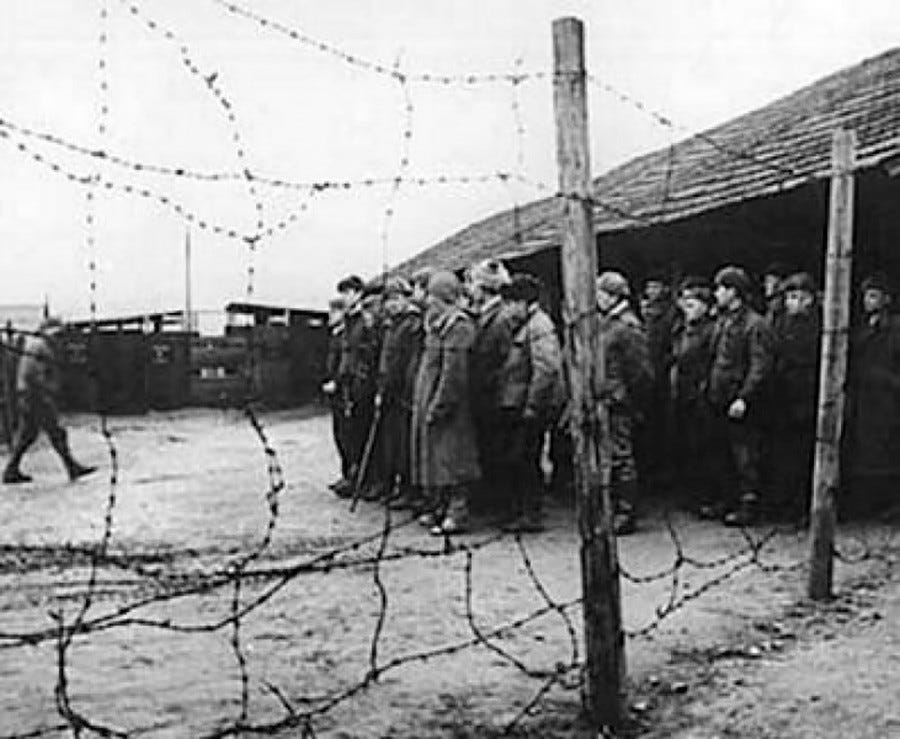

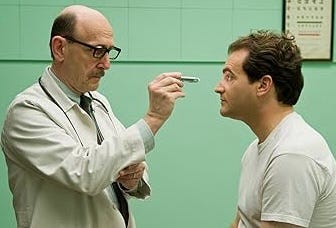

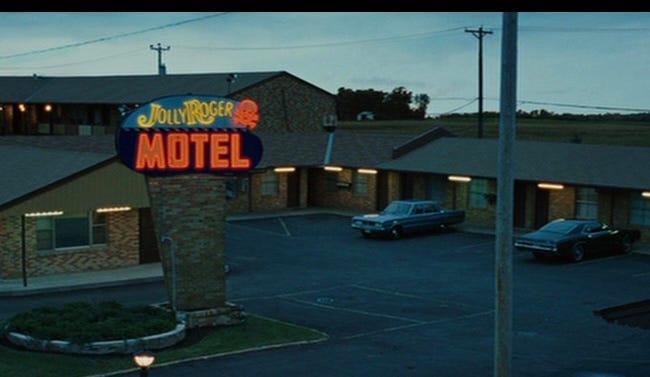

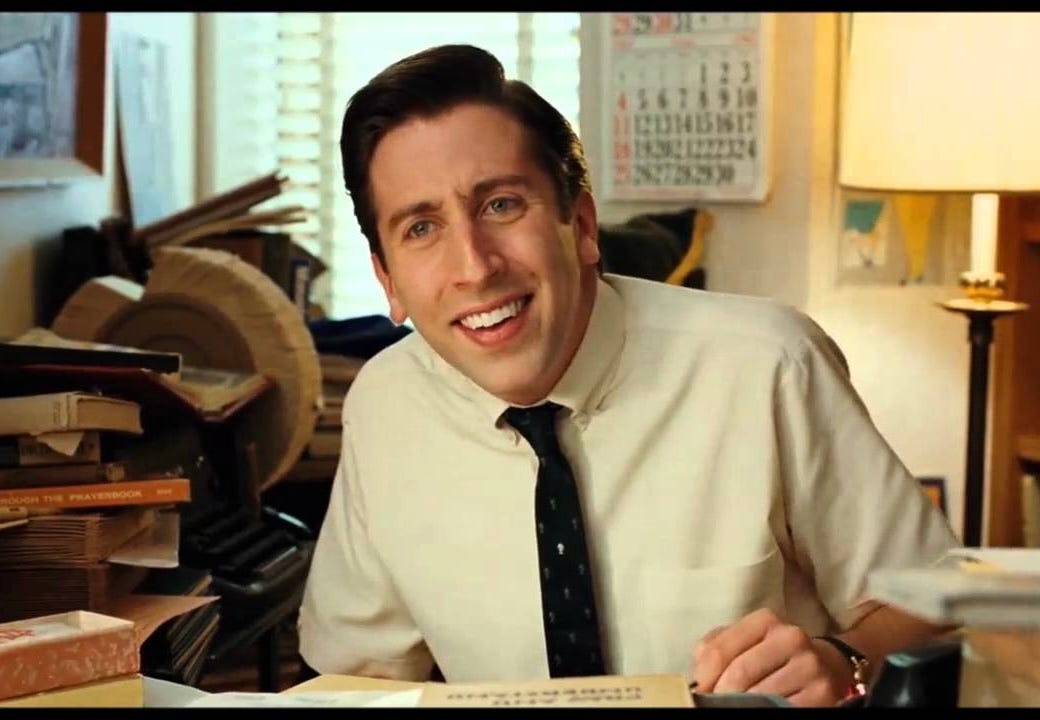

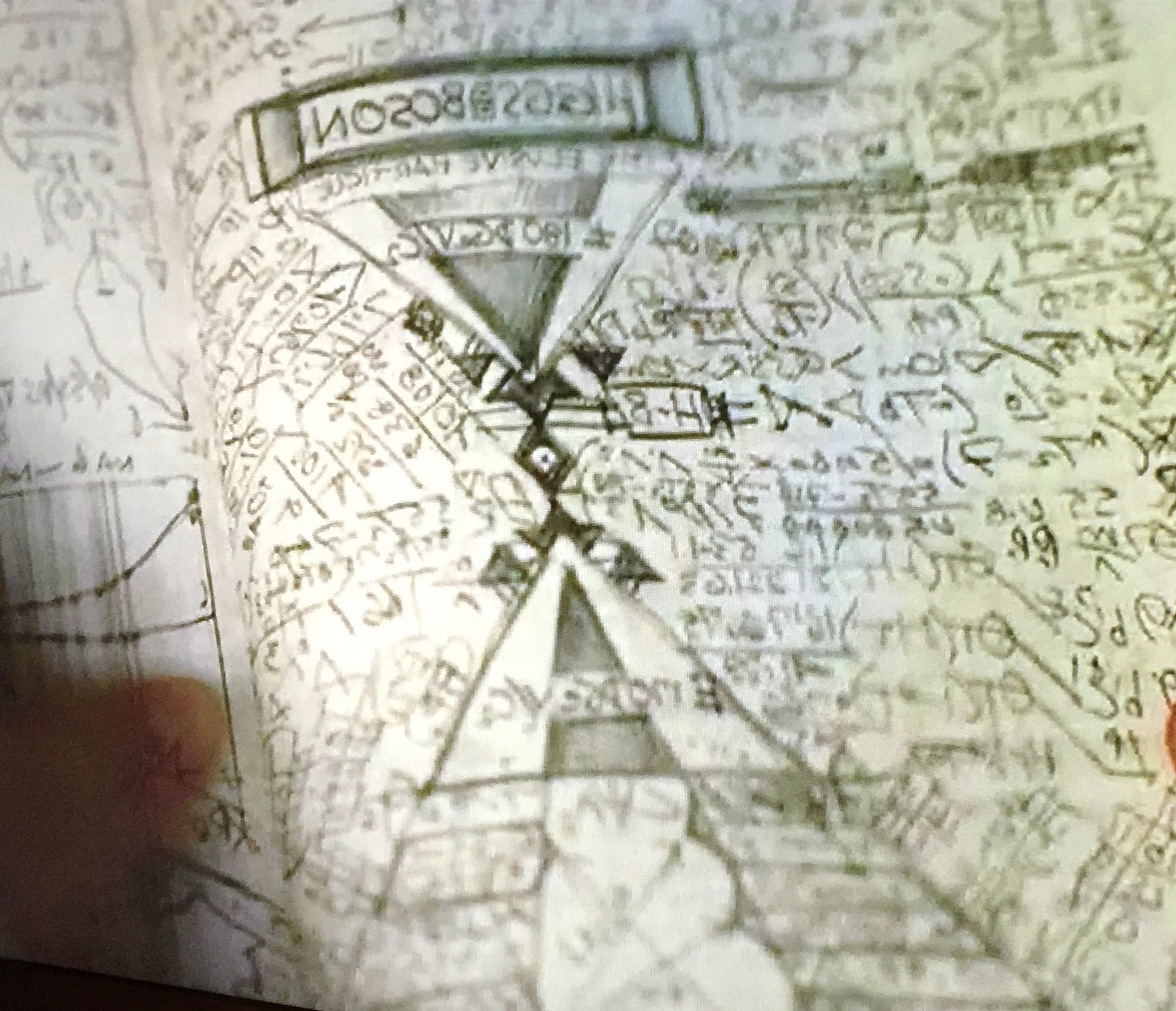

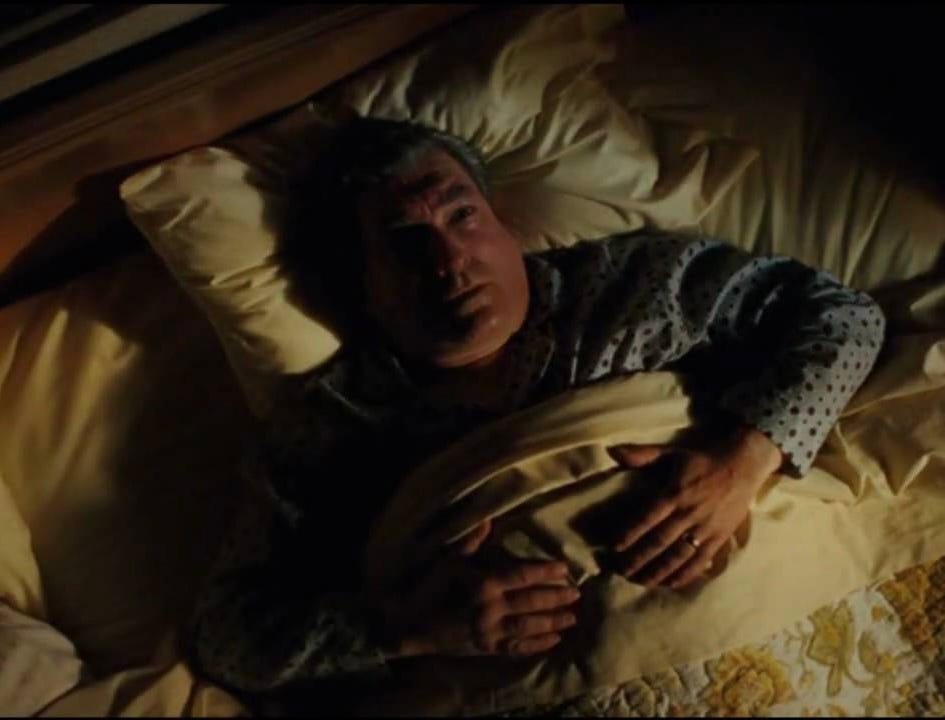
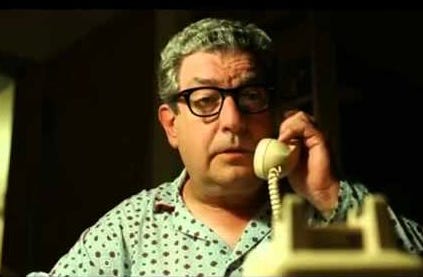
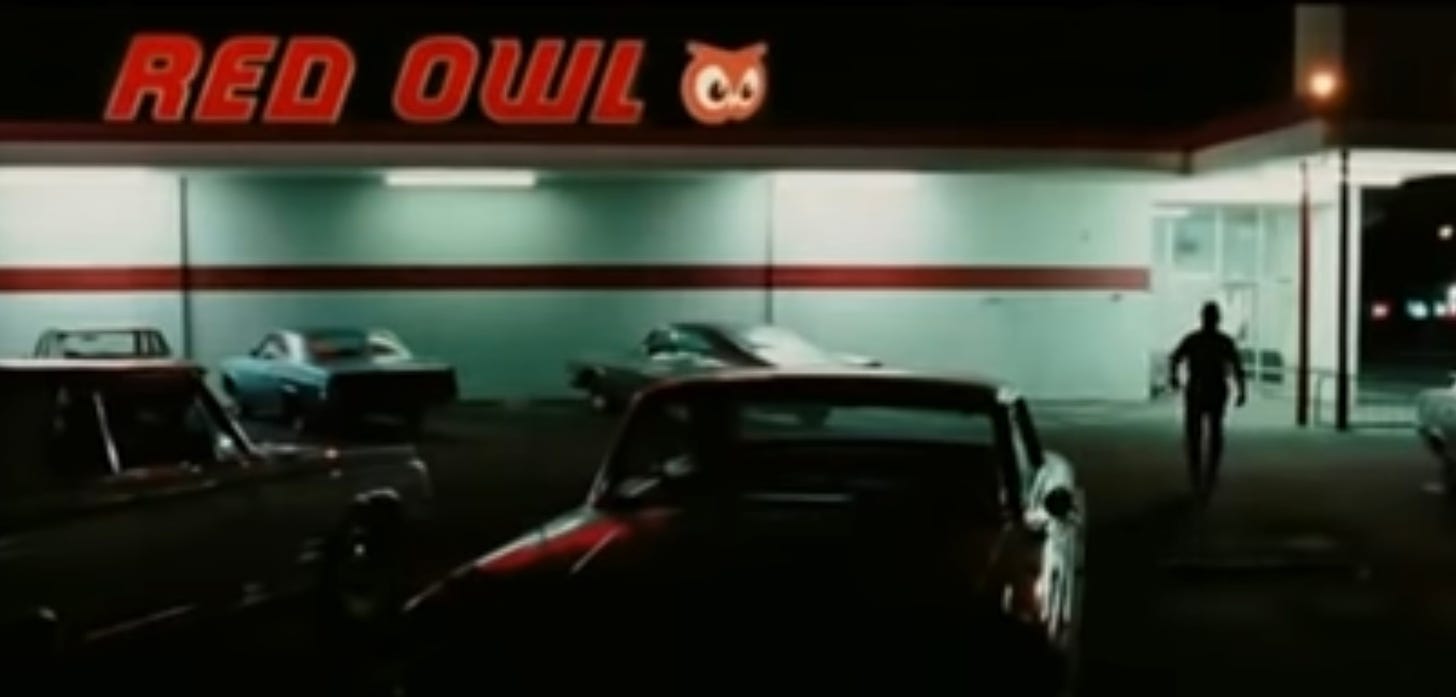
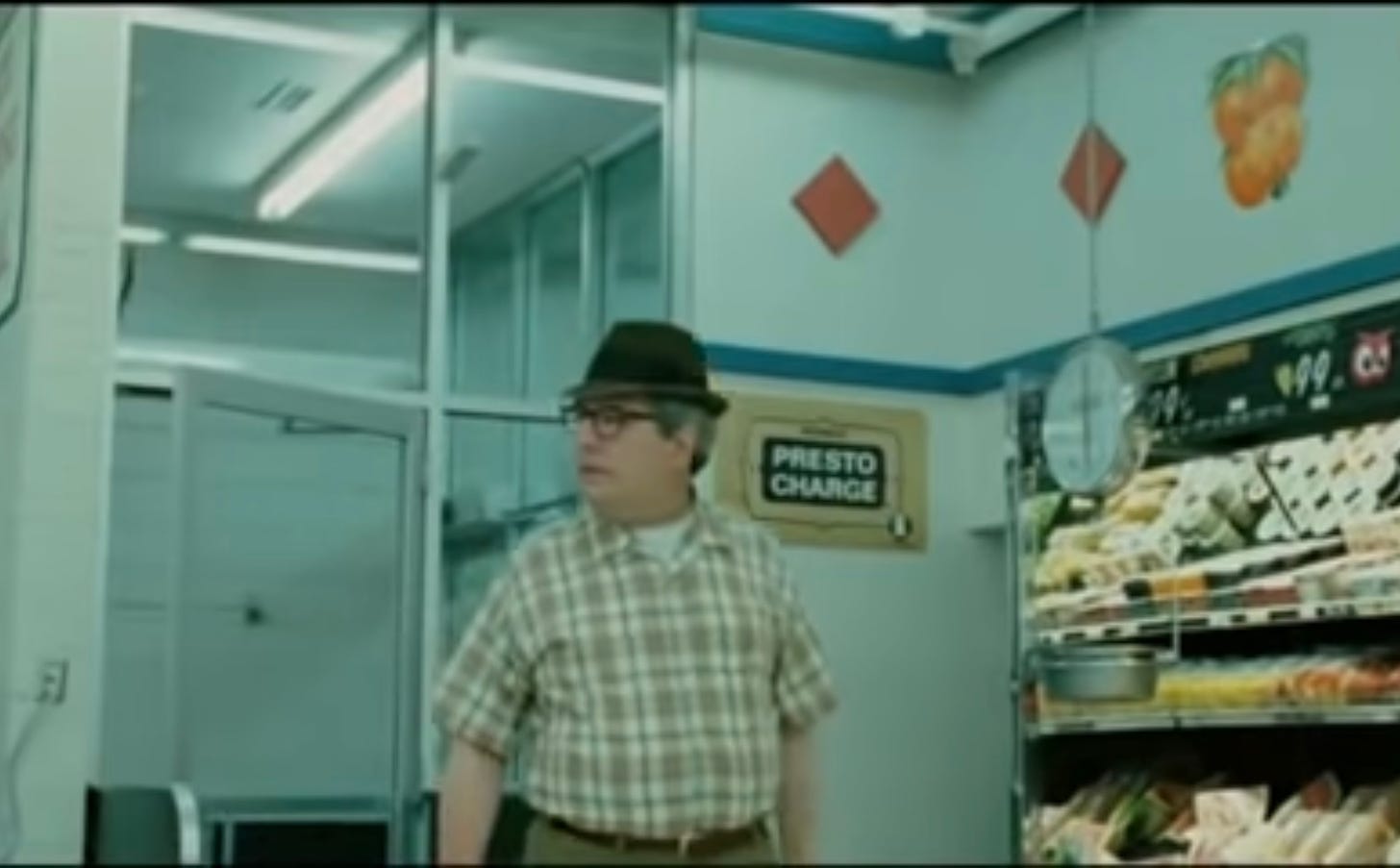

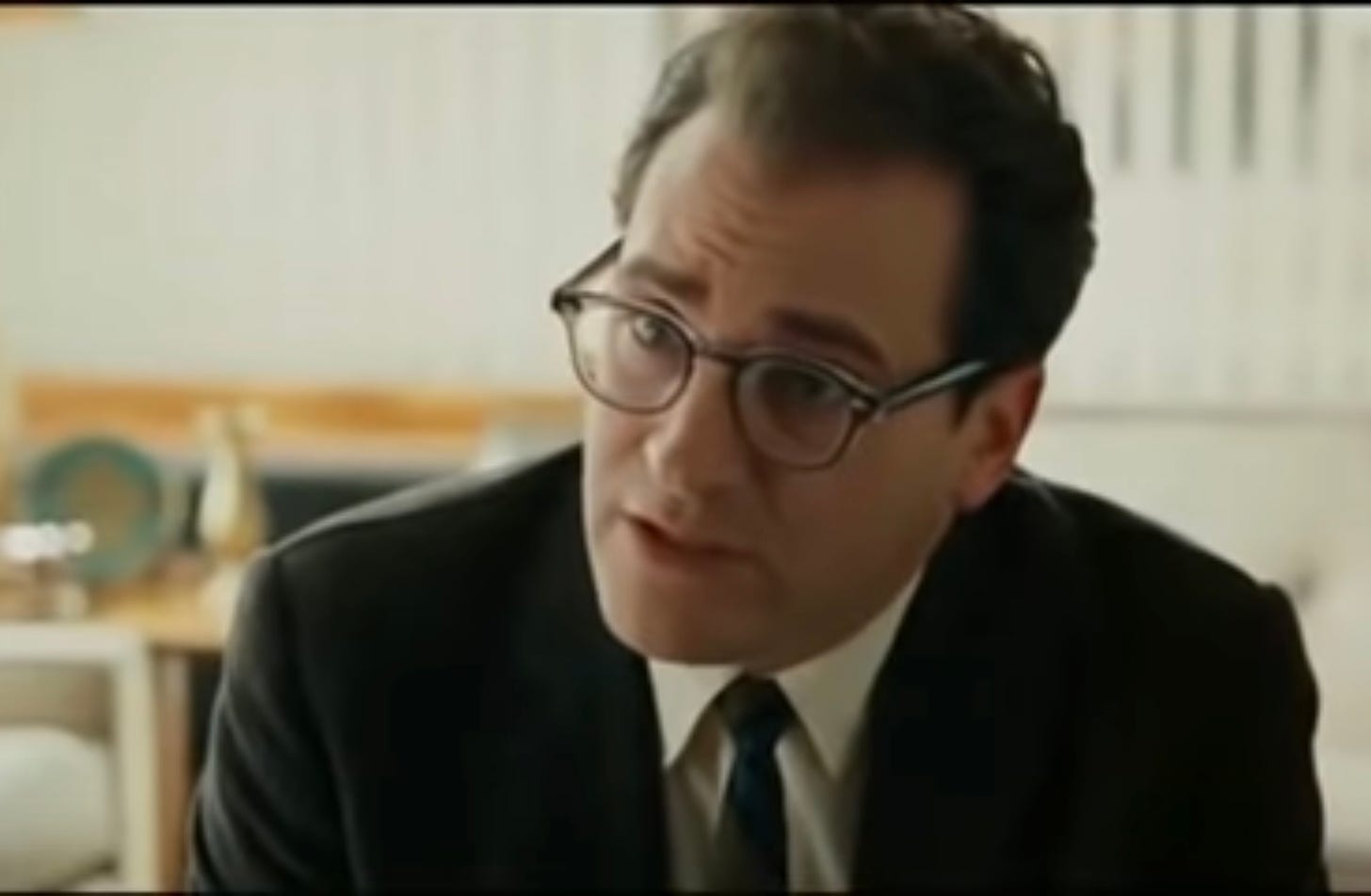
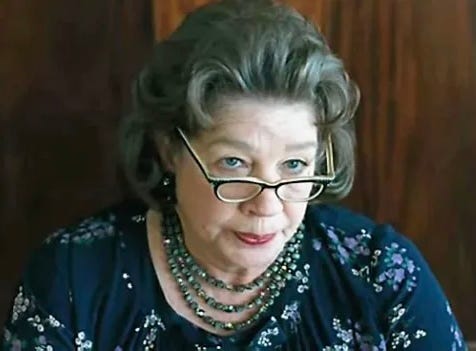
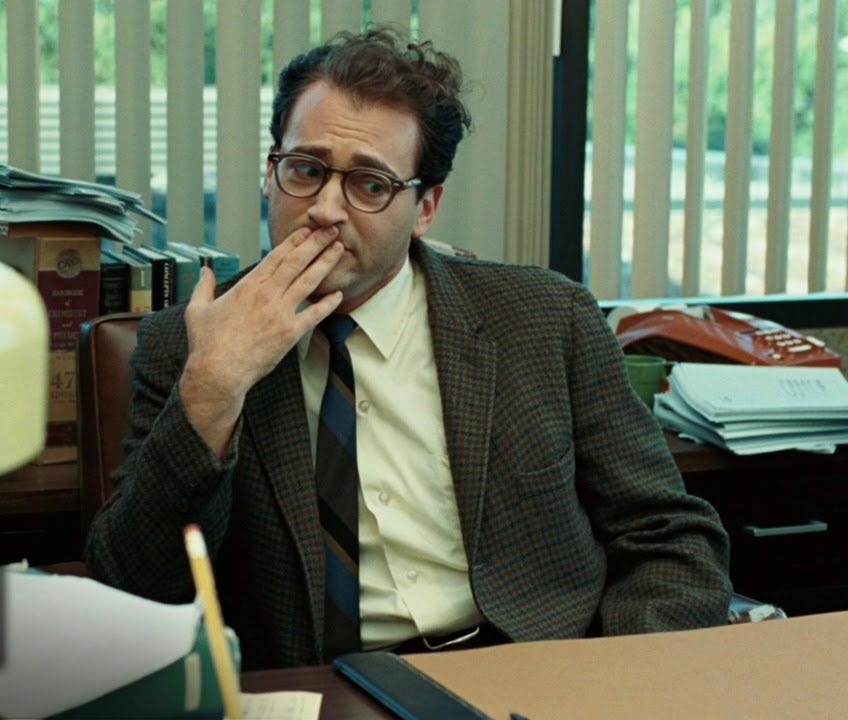
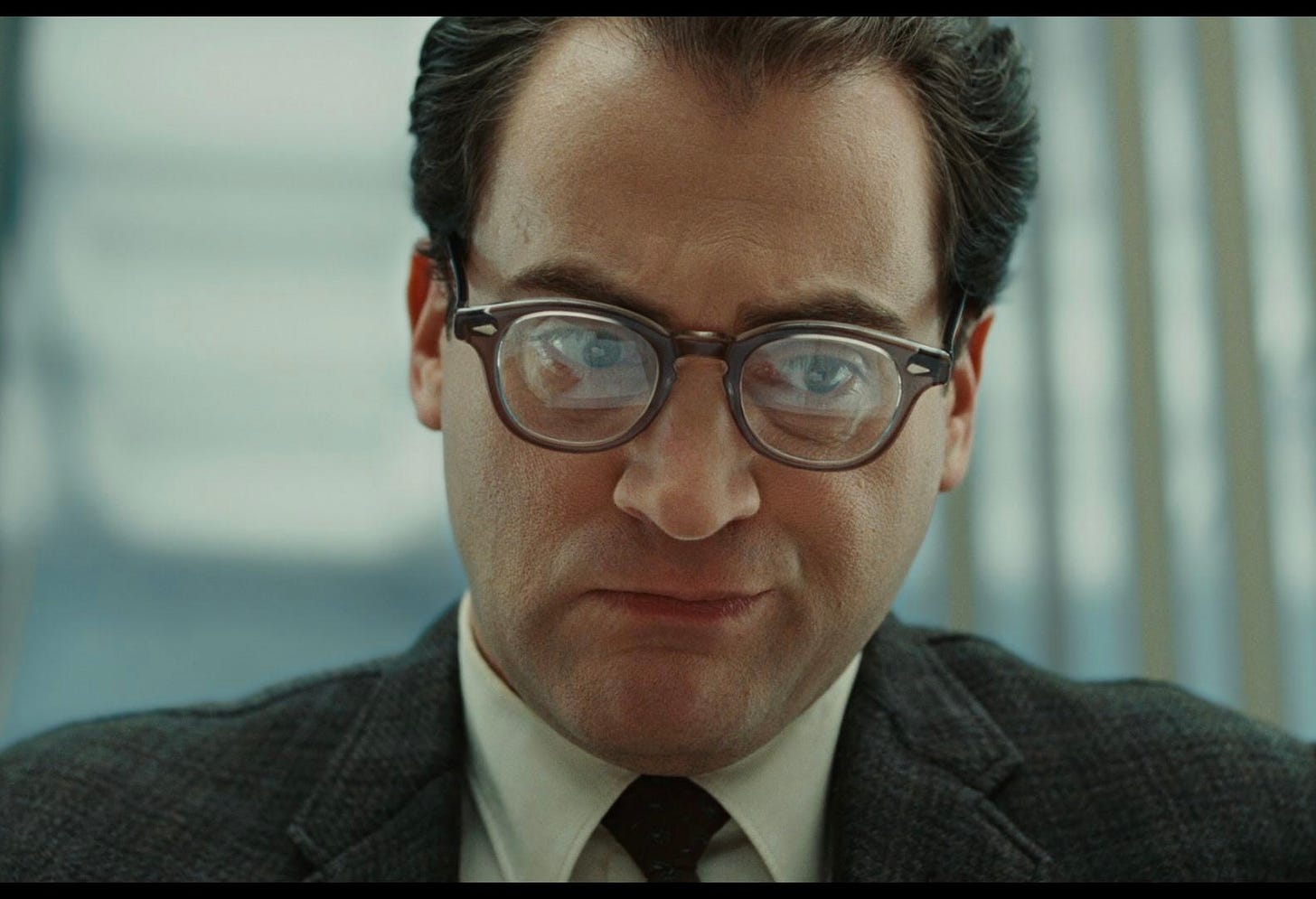












Interesting. I have not seen the film, so will need to check it out. I think an active role in life is always the best, although it is all too easy to slip into passivity. Let life happen to you.
The loss of a sense of autonomy is a kind of death, so the strength of Ivan and the real people he was probably based upon is impressive. A life saver in such an environment. It is tempting to wonder how any of us would fare in a gulag ourselves. We all like to think we'd be the tough ones. But the deep sense of despair would be difficult to survive.
This was very interesting, thank you. I have not read the book or seen the movie but now I want to. Much to think about in regard to “Why me” situations.